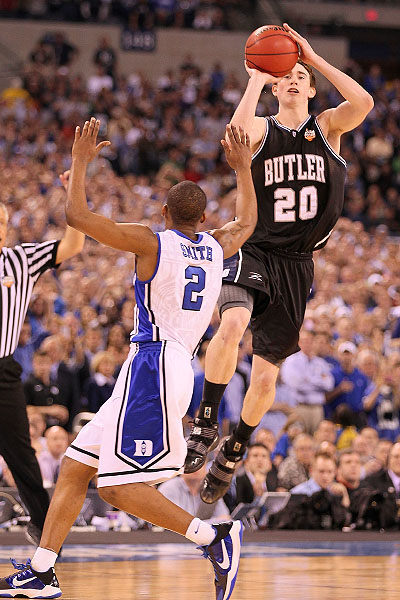Yesterday, the
news broke that the president of the New York Yankees took a shot at Milwaukee Brewers owner Mark Attanasio for talking about the difficulties of resigning star players in small markets. Attanasio was quoted in USA Today, when talking about the difficulties in re-signing Prince Fielder, as saying "We're struggling to sign [Fielder] and the Yankees infield is making more than our team." It's a perfectly valid point. Small market teams, like the Brewers, routinely struggle to keep big-time stars who come up through their systems, while teams like the Yankees make a living through free agency, poaching the stars from teams who are unwilling, or unable to play. But is that the Yankees (and other big market franchises) fault?

(Will Milwaukee pony up the bucks to keep Prince? I certainly hope so.)
Yankees president Randy Levine, upon hearing the quote, retorted "I'm sorry that my friend Mark continues to whine (Attanasio contends he wasn't whining. Whatever.) about his running the Brewers. We play by all the rules and there doesn't seem to be any complaints when teams such as the Brewers receive hundreds of millions of dollars that they get from us in revenue sharing the last few years. Take some of that money that you get from us and use that to sign your players. The question that should be asked is: Where has the hundreds of millions of dollars in revenue sharing gone?" What Levine is getting at here is that the revenue sharing system, which baseball has been operating under for more than a decade, is broken. And I tend to agree with him.

(Oh, you done pissed off Levine. From: ESPN)
Earlier this year, I briefly mentioned the Florida Marlins being pressured by baseball to actually
spend some of the money that teams like the Yankees dole out to them in revenue sharing. The Marlins obliged by almost immediately inking star pitcher Josh Johnson to a $40 million contract extension. But this is not the norm. It has been a problem over the years: teams are receiving big bucks from larger clubs without it showing up on their big league payroll.
Listening to Mike & Mike
this morning, they had Jayson Stark on to talk about this issue. While the only data readily available online shows the years
2002, '03, and '05, Stark talked current numbers. With nearly $500 million being put into the revenue sharing pot this year by the upper echelon of big market clubs, the bottom 5 market teams make around $80 million before a single game is played. Combined with the fact that teams like San Diego and Pittsburgh have
payrolls under $40 million, its a fair question to ask "where has the money gone?"
According to the current
collective bargaining agreement (Which expires in 2011, God help me), the intent of the revenue sharing program is that "[each] Club shall use its revenue sharing receipts (from the Base Plan, the Central Fund Component and the Commissioner’s Discretionary Fund) in an effort to improve its performance
on the field. (emphasis mine)" They even have to provide a written report describing their efforts to meet that goal. Teams generally get around this by saying the money going to improving "institutional security" (paying down debt) and shoring up their minor league system. But minor leaguers aren't "on the field" in my estimation.
The whole goal of the plan is to keep baseball competitive, balanced, and laced with parity. While the Yankees pay into the Central Fund begrudgingly, they do so with the hope that those monies go towards improving other teams with the intent of growing the sport as a whole. How nice of them. In return, they should be seeing something more than $33 million payrolls, and 18 years worth of rebuilding plans (I'm looking at you, Pittsburgh). (Short aside, the White Sox are in this too. In 2005, they paid $18 million into the fund, and the numbers have only gone up since then. Let's go Cleveland, $60 million just aint gonna cut it. Let's see some spending, eh? I want return on the investment of Jerry Reinsdorf's money!)

(Seriously Pittsburgh, I don't want any crap. Pay McCutcheon, get him some protection, and start building a damn team. It's been a 18-year rebuilding plan at this point.)
After dumping nearly $200 million to their competitors, I have no problem with the Yankees pushing back on the general assumption that they are just bullying their competition around. They deserve to see teams actually try to improve their major league clubs with their money. It's easy to paint the Yankees as an evil empire, out to take over the baseball world with their pocketbooks, but it's understandable in this instance for the Yankees to complain about their poorer brethren, since they're basically financing them. On the limited scale of major league baseball, I have no problem with this type of revenue sharing. It's in the interest of every team that the sport remain competitive, and true revenue sharing is one way to go about that as the disparity between the haves and the have-nots grows larger.

(I'm certainly no Yankee apologist, but they do have a point. Spend the dough, damnit.)
The Brewers, particularly, are not the problem. They've increased payroll each of the last 5 years, and are nearing $90 million; so cracking on Attanasio is a little harsh. But the response that Levine gave to the question wasn't necessarily about the Brewers, it was about the general frustration the Yankees have with the system. Along with all the other garbage that baseball will have to deal with when the CBA expires next year, this is an issue that must be addressed, or teams like the Yankees may pull out of revenue sharing entirely. That would be a disaster.











